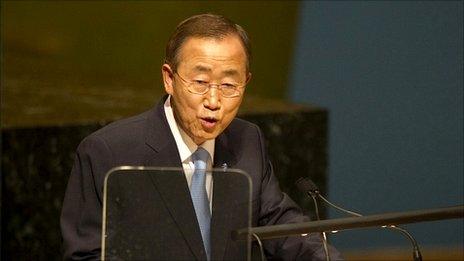UN secretary-general: The other New York race
- Published

The turn of the year will mark the beginning of the new UN secretary general's term
As the hoopla of the presidential campaign comes to New York, featuring the political all-stars seeking to become the world's most powerful leader, another race is also under way in the city - a contest of the largely obscure.
It involves candidates hoping to become the world's most prominent diplomat.
At the stroke of midnight on 31 December, as the glitter ball in Times Square makes its annual descent, United Nations Secretary-General Ban Ki-moon is due to end his term in office.
The manoeuvring to succeed him - at present it is too genteel to describe it as a fight - is now moving into higher gear.
Just as Campaign 2016 could end up with the election of the first female US president, there's a strong possibility that the next head of the UN will become the organisation's first female secretary-general.
This week, for the first time in the 70-year history of the UN, the declared candidates will take part in public hustings.
This is a radical departure for an organisation that rivals the Vatican in the shadowy secrecy of its executive recruitment process, with its monochrome backrooms hosting the UN equivalent of the papal conclave in the Sistine Chapel.
Those who have so far put their names forward, half of them women, will face two hours of questioning from member states.
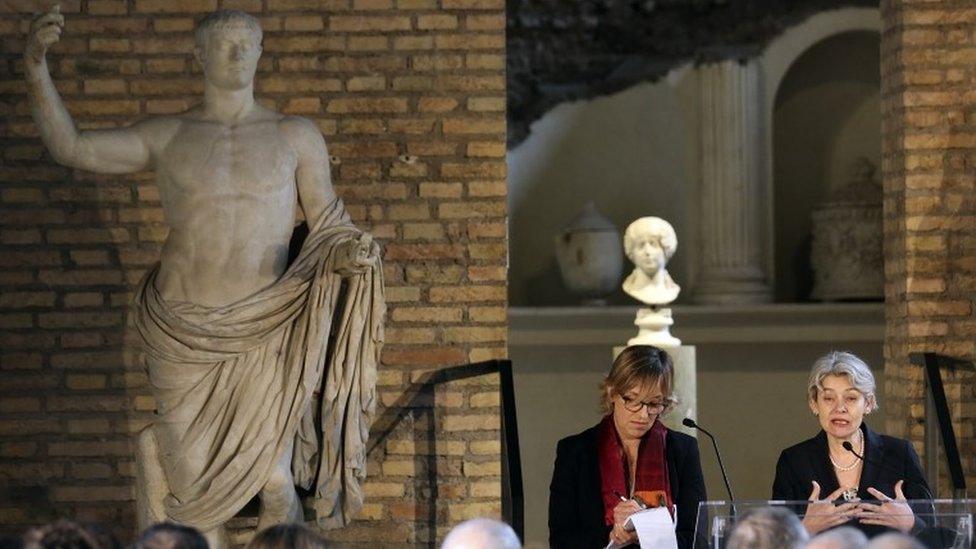
Irina Bukova (right) is the first female to head Unesco - could she be the first female UN secretary-general?
To support their applications, they've also been asked to post their curricula vitae online and to compose a 2,000-word vision statement articulating how they would run an organisation with 30 separate agencies, funds and programmes and 40,000 staff, not to mention 193 member states.
Eastern Europe to prevail?
What has long been a ridiculously closeted and opaque process is being made more inclusive and transparent. The aim is to turn it into something bearing at least some resemblance to a regular interview process, a far cry from the stealth selection procedure that produced Mr Ban.
When the South Korean was jockeying for the job, he shied away from campaigning inside the UN headquarters he would soon end up running.
Eight candidates have so far declared and most are from Eastern Europe. Under an unwritten rule of regional rotation, a diplomatic version of "Buggins' turn", this geographical bloc is next in line to fill the vacancy.
To a global audience, most of the candidates are "need-to-Google" figures.

Who are the candidates so far?
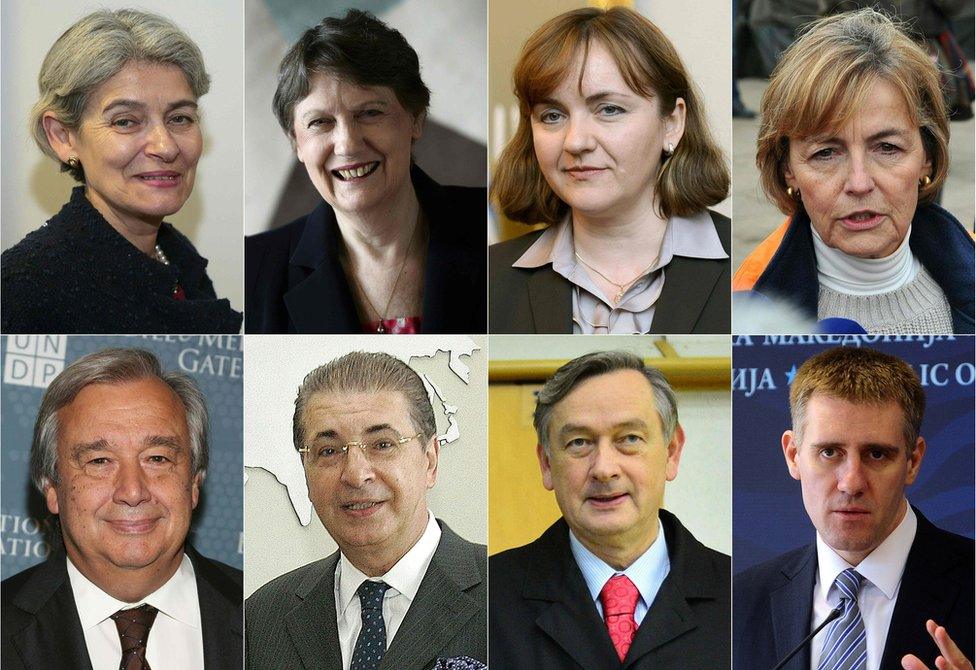
Top row (from left):
Irina Bokova, 63 - Bulgarian politician and director general of Unesco
Helen Clark, 66 - former prime minister of New Zealand (1999-2008) and current head of the UN development programme
Natalia Gherman, 47 - Moldovan politician who was deputy prime minister and minister of European integration from 2013-2016
Vesna Pusic, 62 - Leader of the liberal Croatian People's Party. Served as a first deputy prime minister and minister of foreign and European affairs until January this year
Bottom row (from left):
Antonio Guterres, 66 - Former prime minister of Portugal (1995-2002) and UN High Commissioner for Refugees (2005-2015)
Srgjan Kerim, 67 - Macedonian economist and diplomat. Served as Macedonia's foreign minister from 2000-2001 and was president of the 62nd Session of the UN General Assembly from 2007-2008
Danilo Turk, 64 - Former president of Slovenia (2007-2012). Served as an ambassador to the UN from 1992-2000 and as the UN assistant secretary general for political affairs from 2000-2005
Igor Luksic, 39 - Former prime minister of Montenegro (2010-2012) and current minister of foreign affairs
More information on the candidates and the selection procedure is available on the UN's website, external

Wild card
The field is expected to grow. Kristalina Georgieva, a Bulgarian who is a vice-president of the European Commission, might yet be persuaded to run and may well be Mr Ban's preferred choice.
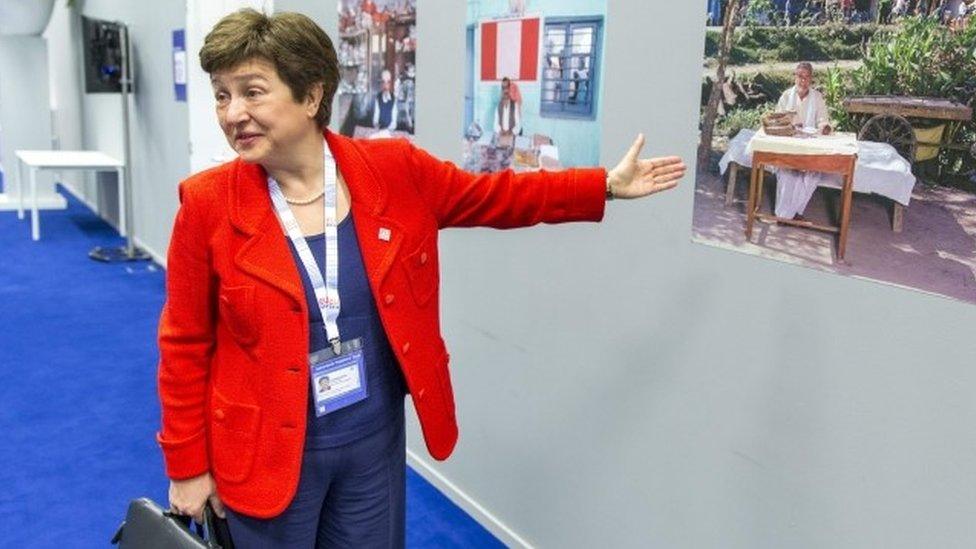
Talk of Kristalina Georgieva joining the race has caused some early excitement
In a move that boosted her UN profile, he selected the former World Bank official to co-chair a panel looking into the funding of humanitarian aid.
However, the Bulgarian government is backing Ms Bokova, who heads the UN Educational, Scientific and Cultural Organisation (Unesco), and Ms Georgieva herself has indicated that she intends to pay "full attention" for the time being to her EU responsibilities.
Kevin Rudd, the former Australian Prime Minister, has long made the UN secretary-general's job the target of his immense personal ambition.
Then there is the wild card. Many diplomats would like to see German Chancellor Angela Merkel throw her giant-sized hat in the ring.
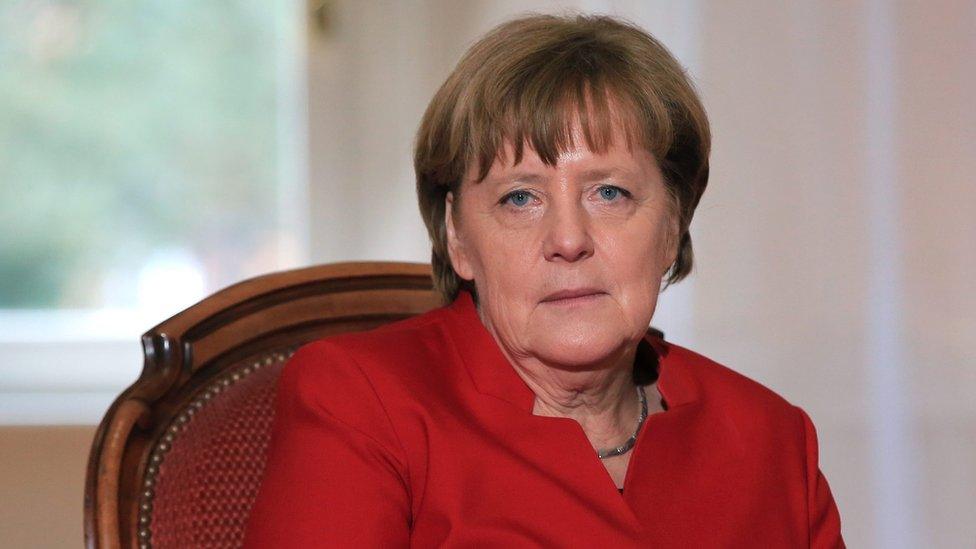
Big hitter - Mrs Merkel has led Germany for more than a decade and was Time Magazine's Person of the Year in 2015
More of a general than a secretary, Mrs Merkel is precisely the kind of big hitter that many UN watchers believe the organisation desperately needs after the more timid leadership style of Mr Ban.
Power of the P5
For all the attempts to modernise the process it could never be described as democratic. Nowhere near.
Under the selection procedure, the 15-member Security Council recommends a single candidate for the 193-member General Assembly to essentially rubber stamp.
Thus, the power still resides with the permanent five members of the Security Council - China, France, Russia, the UK and US - which can all veto candidates. The US, for instance, vetoed Boutros Boutros-Ghali, when the Egyptian sought a second five-year term.
Though the hustings may be held in public, the next UN secretary-general will be the candidate who emerges from backroom bargaining, mainly involving the US and Russia.
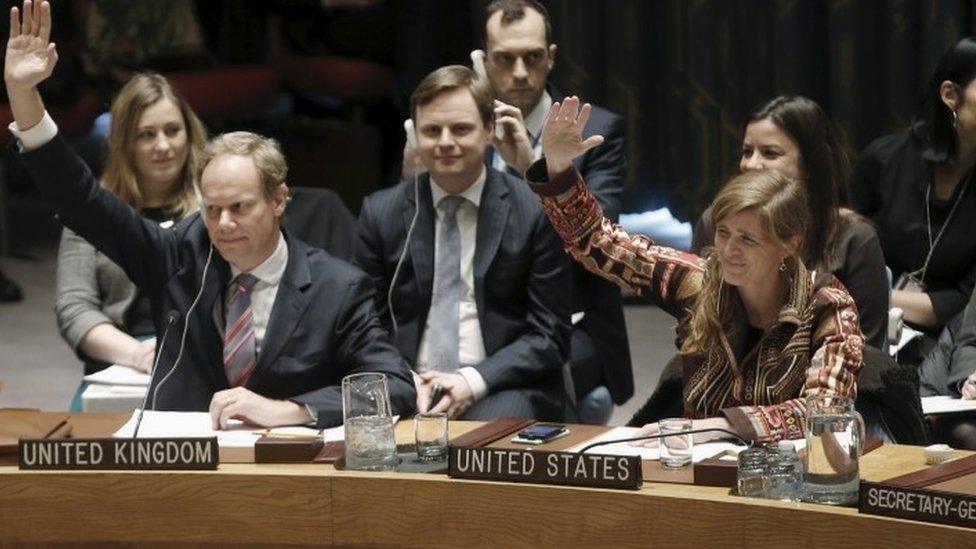
The successful candidate will be the one who is the least objectionable to the P5 countries
What's more important than the candidates' CVs, then, is whether at any stage of their careers they have displeased the permanent "P5" members.
This is a headache for Ms Bokova, who as head of Unesco, admitted the Palestinians into the organisation, against the express wishes of the US, which retaliated by cutting off funding.
She is also seen as Moscow's preferred choice, which means the US is almost certain to block her. As for her fellow Bulgarian, Ms Georgieva could pay a price for the EU's sanctions against Russia. Others fail what's been called the "testicular test", external.
General v secretary
Despite the new-found openness of the process, UN reformers had been lobbying for more sweeping changes to the selection process.
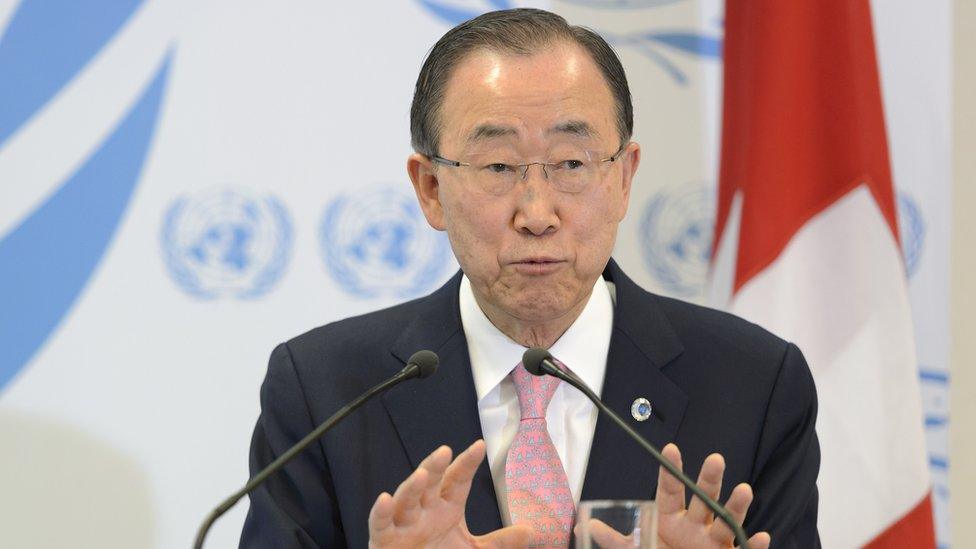
Mr Ban's understated leadership style during his two terms has not been universally praised
The 1 for 7 Billion campaign, external, an umbrella group bringing together NGOs from all over the world, has urged the Security Council to recommend two candidates to the General Assembly, something the P5 veto-wielders would never sanction.
They would also prefer to see the new secretary-general appointed to a single seven-year term, rather than the present practice of serving two five-year terms. Again, that will not happen.
So despite calls for a strong figurehead for the UN - that general rather than secretary idea - the present system means that compromise candidates inevitably emerge, who are not necessarily the most able but the least objectionable to the P5 countries.
Rather than a big name, the UN could easily end up with a leader little known outside diplomatic circles, a new secretary-general whom most of the world will have to Google.
- Published5 April 2016
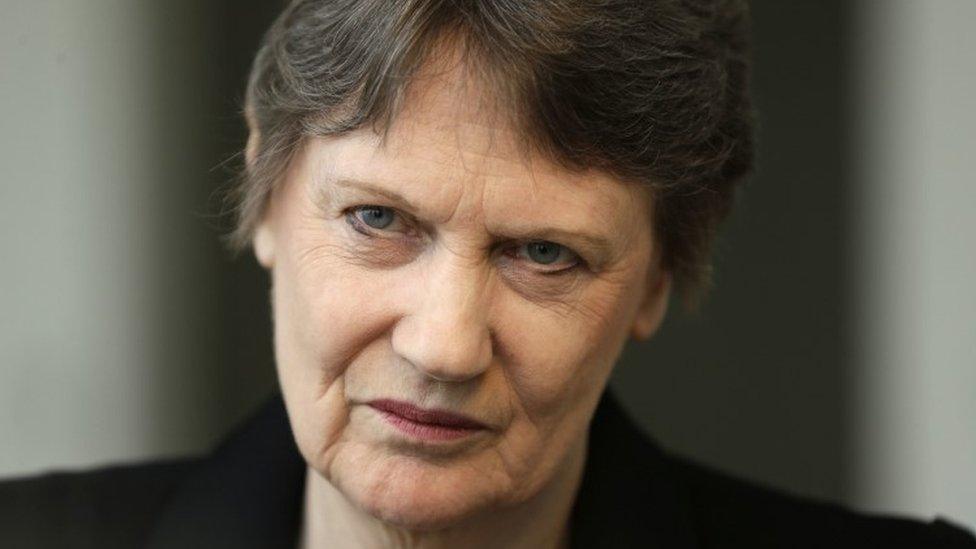
- Published22 June 2011
